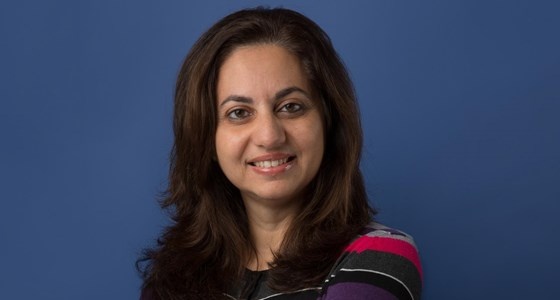Program Officer for Decent Work and Social Protection at Ford Foundation, Ghada Abdel Tawab’s speech at Strengthening Localization in Jordan Event
image by Ford Foundation
As much as we want to stay hopeful for a new COVID19 vaccine, there is concern that we end up going back sooner than later to “the bad old normal” or even a “worse new normal.”
With a new vaccine, debates have already started on who gets it first? Who can afford it? And who will fall behind?
Equity (or rather inequity) in distribution between north and south, rural and urban, migrants and citizens is a good reminder of the stark inequalities in our world today.
New vaccines raise questions of intellectual property and distribution infrastructure which unfortunately put the global south at a disadvantage.
Lesson 1
Yet, the very recent lessons of covid-19 suggest that nobody is safe until everybody is safe. We are all vulnerable regardless of who we are and where we are!
Like with vaccine production and distribution, inequality and power imbalance are at the core of the localization conversation.
NGOs in the global south, and more specifically in our region, have daily struggles: struggle for resources (still controlled by northern NGOs); struggle for more space with their own governments and struggle for legitimacy and trust with their own constituencies.
The dominant narrative on local civil society is mostly one of distrust, skepticism, incompetence, and foreign agendas
Lesson 2
Yet, another lesson learned from covid-19: it is local actors and not internationals who could respond immediately during the pandemic. We have seen local coalitions distributing food and health kits; analyzing crisis management systems and proposing alternative measures and long-term system change. They knew exactly who to target, when, and how? They were flexible and nimble to adjust
this is a moment of rebuilding trust in local and national civil society.
Lesson 3
We also learned that short term hit and run project-based solutions do not work. The pandemic has exposed the fragility of our systems both in the global north and the global south.
Structural inequalities in health, education, social protection, taxation, and international debt are at the core of humanitarian assistance conversations. These are not parallel conversations… The global and the local are also closely interlinked.
Local civil society has the legitimacy to work on this nationally while INGOs focus on global systems and international advocacy
For us funders, how are we revisiting our business model?
Risk sharing is of the essence. The assumption that local organizations are “riskier” than internationals is no longer valid. This is a myth of the past!
Investing long term in local capacity, movement building, local knowledge, and crisis management is the way to go so we are all better prepared next time a crisis hits!
In 2016, the ford foundation introduced its new build program for investing in the long-term resilience of institutions. Multi-year, flexible, and unrestricted core support allows organizations in the global south to control their agenda and set their own priorities; thus, shifting the power
With the global pandemic, the Ford Foundation issued a 1 billion $ social bond to support civil society’s response to the crisis. As governments offer stimulus packages to rescue businesses, private philanthropy has an obligation towards civil society to share the risk during a global crisis.
We are proud of our partnership with ARDD who is leading on this important and timely conversation on localization. The opening remarks this morning have been promising and suggest an openness by the government for genuine partnerships with local civil society in Jordan.
Like with the new vaccine, convergence, collaboration, and equity among all parties (local civil society, INGOs, governments, private sector, and donors) are at the core of a better new deal on localization!


